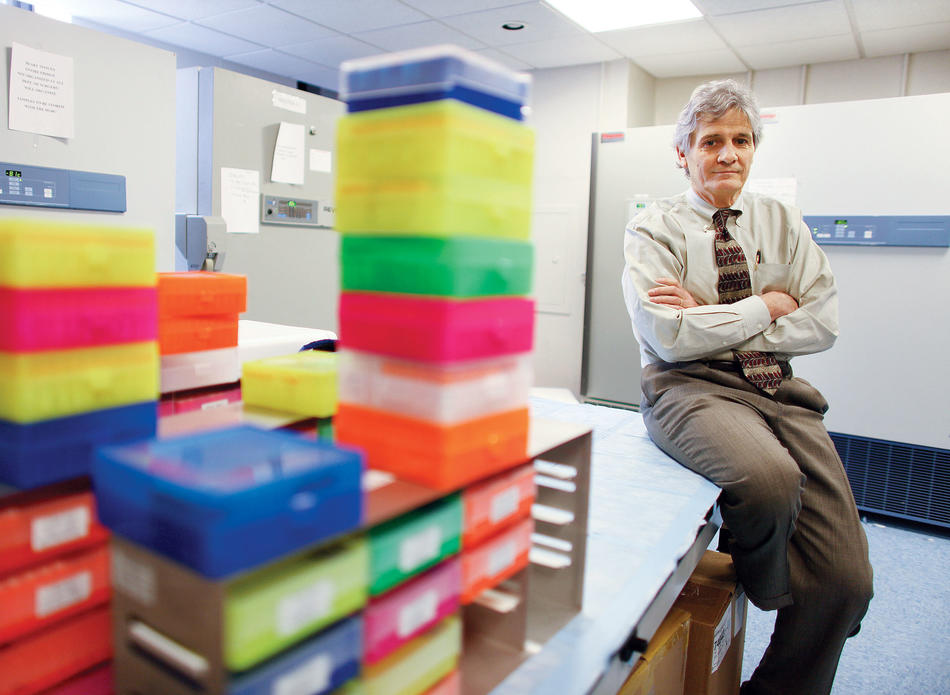Scientists have long suspected that Alzheimer’s disease is caused by sticky plaques that gum up synaptic connections in the brain. Pharmaceutical companies, in their quest to develop an effective treatment for Alzheimer’s, have focused mainly on preventing the formation of these plaques.
But a new study has identified several other biological systems that appear to be involved in Alzheimer’s. The study, published in the April issue of Nature Genetics, has found that people with genetic abnormalities known to cause problems with cholesterol, inflammation, and a deterioration of nutrient-transportation routes within brain cells are more likely to get Alzheimer’s. The paper results from the largest genetic assessment of Alzheimer’s ever conducted: It involved 155 scientists from 44 institutions led by the University of Pennsylvania, the University of Miami, Boston University, and Columbia. By pooling their data, the researchers were able to link four genes to Alzheimer’s, thus increasing the total number of genes known to be associated with the disease from 6 to 10.
“This provides solid evidence that there are at least three other physiological pathways that need to be studied” in addition to the formation of the brain plaques, says Richard Mayeux, a Columbia neurologist and one of the collaboration’s lead scientists. “It’s really going to open up the field of Alzheimer’s research.”
The paper doesn’t refute the consensus view that Alzheimer’s is caused primarily by an overabundance of tiny protein fragments that solidify into brain plaques. In fact, the genes that Mayeux and his colleagues have linked to Alzheimer’s each seem to increase a person’s risk for the disease only slightly. Nevertheless, the discovery could one day help drug companies create more comprehensive treatments, Mayeux says. He points out that several experimental drugs designed in recent years to prevent the formation of brain plaques have failed to slow or stop the disease. This has led many scientists to suspect that preventing the formation of these plaques, while a necessary step in treating the disease, is not adequate.
“Now, we need to ask: How important are each of these other factors?” says Mayeux, who is the Gertrude H. Sergievsky Professor of Neurology, Psychiatry, and Epidemiology. “We don’t have those answers yet. But what’s clear is that Alzheimer’s disease is a lot more complicated than many scientists used to think.”



